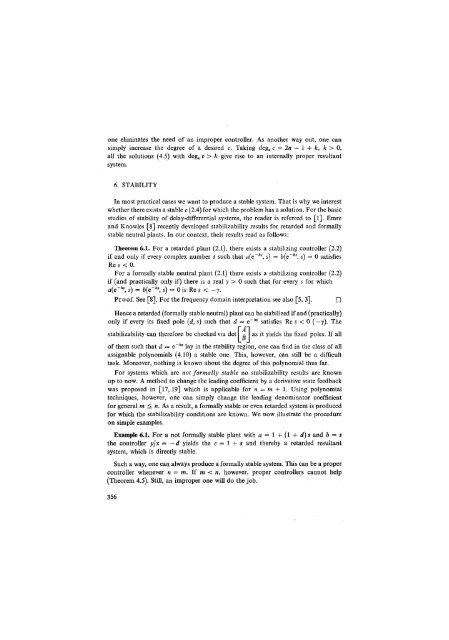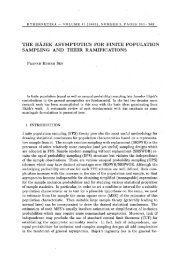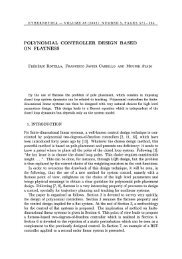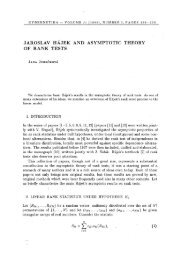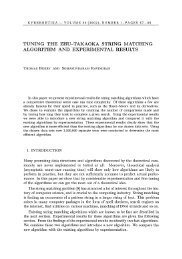characteristic polynomial assignment for delay ... - Kybernetika
characteristic polynomial assignment for delay ... - Kybernetika
characteristic polynomial assignment for delay ... - Kybernetika
You also want an ePaper? Increase the reach of your titles
YUMPU automatically turns print PDFs into web optimized ePapers that Google loves.
one eliminates the need of an improper controller. As another way out, one can<br />
simply increase the degree of a desired c. Taking deg s c = 2n — 1 + k, k > 0,<br />
all the solutions (4.5) with deg s v > k give rise to an internally proper resultant<br />
system.<br />
6. STABILITY<br />
In most practical cases we want to produce a stable system. That is why we interest<br />
whether there exists a stable c (2.4) <strong>for</strong> which the problem has a solution. For the basic<br />
studies of stability of <strong>delay</strong>-differential systems, the reader is referred to [1]. Emre<br />
and Knowles [8] recently developed stabilizability results <strong>for</strong> retarded and <strong>for</strong>mally<br />
stable neutral plants. In our context, their results read as follows:<br />
Theorem 6.1. For a retarded plant (2.1), there exists a stabilizing controller (2.2)<br />
if and only if every complex number s such that a(e~ hs , s) = b(e~ hs , s) = 0 satisfies<br />
Re s < 0.<br />
For a <strong>for</strong>mally stable neutral plant (2.1) there exists a stabilizing controller (2.2)<br />
if (and practically only if) there is a real y > 0 such that <strong>for</strong> every s <strong>for</strong> which<br />
a(e~ hs , s) = b(e~ hs , s) = 0 is Re s < -y.<br />
Proof. See [8]. For the frequency domain interpretation see also [5, 3].<br />
Hence a retarded (<strong>for</strong>mally stable neutral) plant can be stabilized if and (practically)<br />
only if every its fixed pole (d, s) such that d = e~ hs satisfies Re s < 0 (—y). The<br />
stabilizability can there<strong>for</strong>e be checked via det - as it yields the fixed poles. If all<br />
of them such that d = e~ hs lay in the stability region, one can find in the class of all<br />
assignable <strong>polynomial</strong>s (4.10) a stable one. This, however, can still be a difficult<br />
task. Moreover, nothing is known about the degree of this <strong>polynomial</strong> thus far.<br />
For systems which are not <strong>for</strong>mally stable no stabilizability results are known<br />
up to now. A method to change the leading coefficient by a derivative state feedback<br />
was proposed in [17, 19] which is applicable <strong>for</strong> n = m + 1. Using <strong>polynomial</strong><br />
techniques, however, one can simply change the leading denominator coefficient<br />
<strong>for</strong> general m


